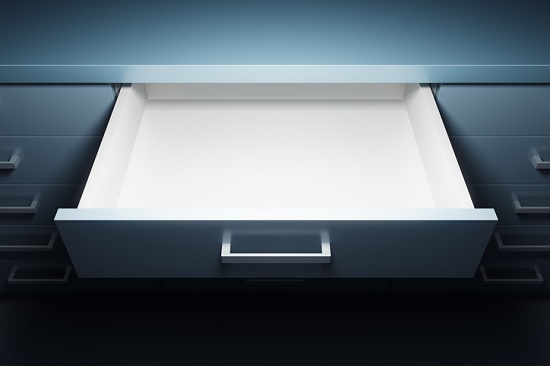
As hearing professionals, there’s one specific type of hearing aid that we all are worried about. It’s bad for the client, and it can prevent other people from even attempting to give hearing aids a chance.
They’re referred to as “in-the-drawer” hearing aids. Compared with behind-the-ear or in-the-canal hearing aids, ITD hearing aids never see the light of day, demoralizing the client and anyone the client informs about their inadequate experience.
For the countless numbers of individuals that have purchased hearing aids, a good amount will call it quits on the prospect of healthier hearing for one reason or another. But with modern day technology, we know that this shouldn’t be the case.
But hearing aids are tricky. There are several things that can go wrong, leading to an unsatisfactory experience and causing people to call it quits. But there are ways to protect against this, steps you can take to assure that, with a bit of patience, you get the optimum results.
If you’ve had a bad experience in the past, know someone who has, or are planning on giving hearing aids a shot, you’ll want to keep reading. By recognizing the reasons some people give up on hearing aids, you can avert the same mistakes.
Below are the main reasons people give up on hearing aids.
1. Selecting the wrong hearing aid or device
Let’s begin with the fact that everyone’s hearing is unique. Your hearing loss, like your fingerprint, is also unique to you. What is more, most individuals with hearing loss have more difficulty hearing higher-pitched sounds, like speech, compared to other sounds.
Which means that, if you go with a device that amplifies all sound uniformly, like most personal sound amplifiers, sound quality will suffer, and you’ll still most likely be drowning out speech. You need a hearing aid that is programmed to amplify the targeted sounds and frequencies you have difficulty with, while suppressing background noise at the same time.
Only programmable digital hearing aids have this capacity.
2. Faulty hearing aid programming or fitting
Seeing as hearing loss is unique, the hearing aid must be custom-programmed for you exclusively. If the settings are incorrect, or your hearing has changed over the years, your hearing expert may have to adjust the settings.
Far too frequently, people give up too soon, when all they need is some adjustment to the amplification settings. Additionally, if your hearing changes, you might need the settings updated. Think about it like prescription glasses; when your vision changes, you update the prescription.
Also, nearly all hearing aids are custom-formed to the contours of the ear. If you find the fit uncomfortable, it may either just take some time to get used to or you may need a new mold. Either way, this shouldn’t prevent you from acquiring better hearing.
3. Not giving hearing aids a chance to work
There are two problems here: 1) controlling expectations, and 2) giving up too early.
If you think that hearing aids will immediately return your hearing to normal, you’re setting yourself up for disappointment. Hearing aids will improve your hearing considerably, but it requires some time to get used to.
At first, your hearing aids may be uncomfortable and loud. This is common; you’ll be hearing sounds you haven’t heard in many years, and the amplification will sound “off.” Your brain will adapt, but not immediately. Plan on giving your hearing aids about 6-8 weeks before your brain fully adjusts to the sound.
Your persistence will pay off—for clients who give themselves time to adjust, satisfaction rates escalate to over 70 percent.
4. Difficulty hearing in noisy surroundings
Individuals with new hearing aids can come to be easily overwhelmed in hectic, noisy environments with a lot of sound. This can occur for a couple different reasons.
First, if you immediately start using your new hearing aid in loud settings—prior to giving yourself an opportunity to adapt to them at home—the sound can be overwhelming. Make an effort to adjust in quieter environments before testing at a loud restaurant, for example.
Second, you’ll need to adjust to the loud environments as well, just like you did at home. It’s typical to have one negative experience and give up, but keep in mind, your brain will adapt in time.
And last, you might just need to upgrade your hearing aids. The latest models are becoming significantly better at filtering out background noise and enhancing speech. You’ll want to take advantage of the new technology as the pace of change is fast.
It’s true that hearing aids are not for everyone, but the next time you hear a story about how hearing aids don’t work, you should begin questioning if any of the above is applicable.
The fact that hearing aids didn’t work out for somebody else doesn’t mean they won’t work for you, especially if you work together with a trustworthy hearing care professional. And if you’ve had a substandard experience in the past yourself, maybe a clean start, better technology, and professional care will make all the difference.